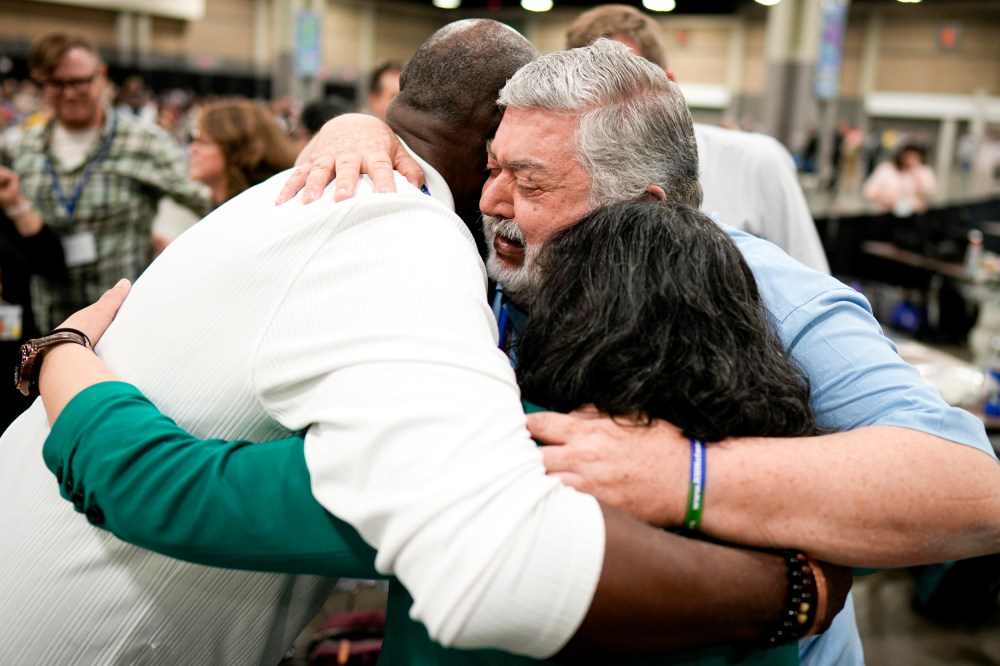“The practice of homosexuality is incompatible with Christian teaching. Therefore self-avowed practicing homosexuals are not to be certified as candidates, ordained as ministers, or appointed to serve in The United Methodist Church.”
That passage from the United Methodist Book of Discipline haunted me as I grew up in a UMC congregation in Texas. I sensed a call to ministry from an early age, but I also knew my denomination denied my God-given dignity because I was gay.
I sensed a call to ministry from an early age, but I also knew my denomination denied my God-given dignity because I was gay.
Wednesday morning, the UMC’s highest legislative body removed the discriminatory ban from the Book of Discipline. The denomination also adopted another policy barring clergy or churches that celebrate same-sex weddings from being penalized. Last week, the UMC proclaimed a new statement of support “for the equal rights, liberties, and protections of all people, regardless of sexual orientation or gender identity.”
Additional measures affirming LGBTQ dignity will be taken up this week as the UMC’s General Conference meets in Charlotte, North Carolina.
This monumental embrace of the dignity of LGBTQ people will be the most impactful move by any Christian denomination to change its policies in recent years. The United Methodist Church is the largest mainline Protestant denomination in the country, with 5,424,043 members and 29,746 active churches as of 2022.

The Methodist change of church policy is an important moment in the broader cultural shift toward LGBTQ acceptance and affirmation. We can put to rest the idea that religion and LGBTQ rights are inherently in conflict. Just as positive views on LGBTQ rights have trended upward, so, too, have Christian groups evolved their theological understandings of human sexuality and gender identity. In the process, more and more churches have embraced a more expansive view of human dignity.
Unsure whether the “God vs. Gays” narrative is outdated? I invite you to visit your local Pride parade this June and count the number of churches marching in the street.
The UMC vote is the latest in a wave of good news for LGBTQ Christians as more and more churches change their policies. The Evangelical Lutheran Church in America, the Episcopal Church and the Presbyterian Church USA, the nation’s second-, third- and fourth-largest mainline Protestant denominations, have all taken pro-LGBTQ steps in recent years. Pope Francis has moved the Catholic Church in a positive direction, allowing priests to bless same-sex couples.
And whether or not their official teachings condone homosexuality, Christians in the pews favor LGBTQ rights. Majorities of white Catholics, Hispanic Catholics, white evangelicals, white mainline Protestants, Black Protestants, Latter-day Saints and Orthodox Christians support laws protecting LGBTQ people from discrimination, according to the Public Religion Research Institute.
There’s also a movement for LGBTQ dignity in Christian communities around the globe.
There’s also a movement for LGBTQ dignity in Christian communities around the globe. South African Archbishop Desmond Tutu, who died in 2021, was one of the fiercest advocates. “I would not worship a God who is homophobic,” he once said. “I would refuse to go to a homophobic heaven. No, I would say, ‘Sorry, I would much rather go to the other place.’”












